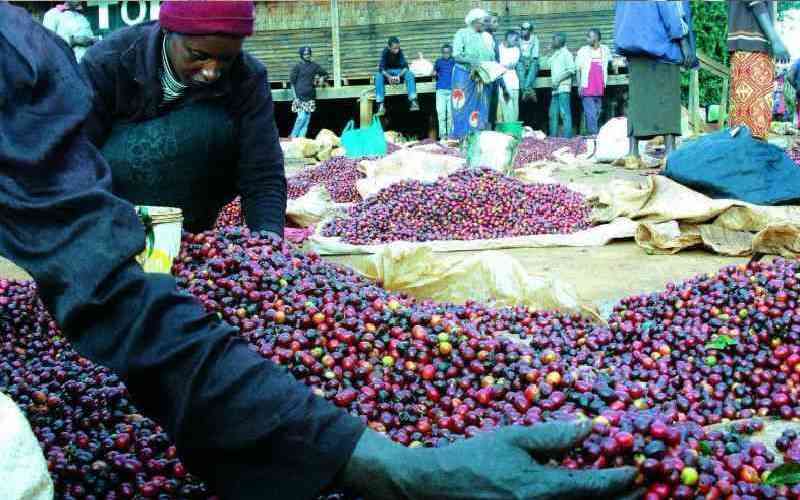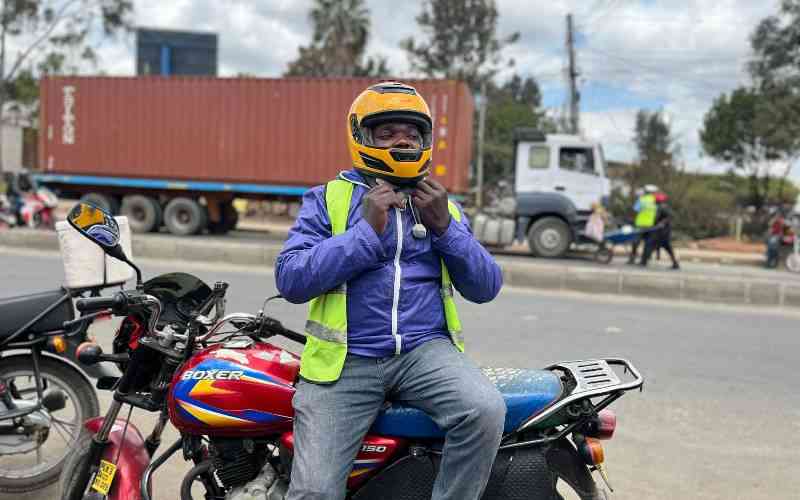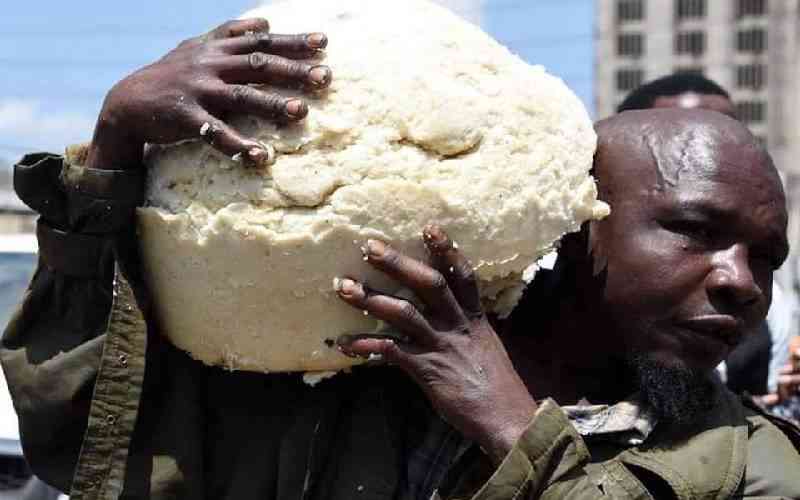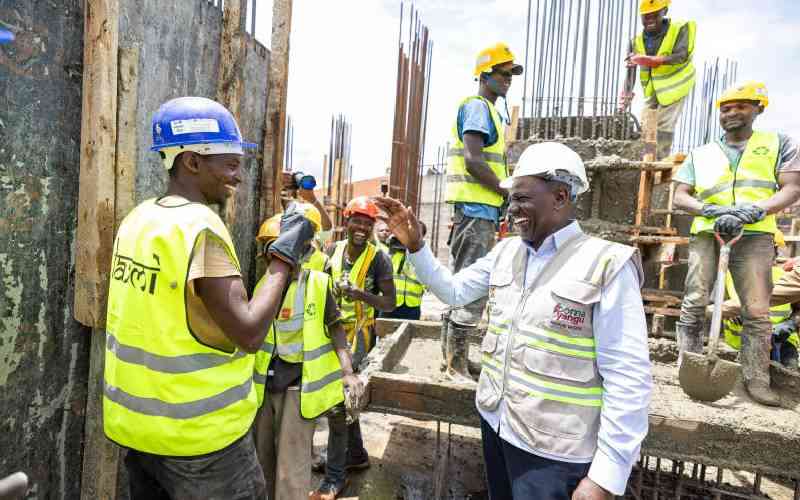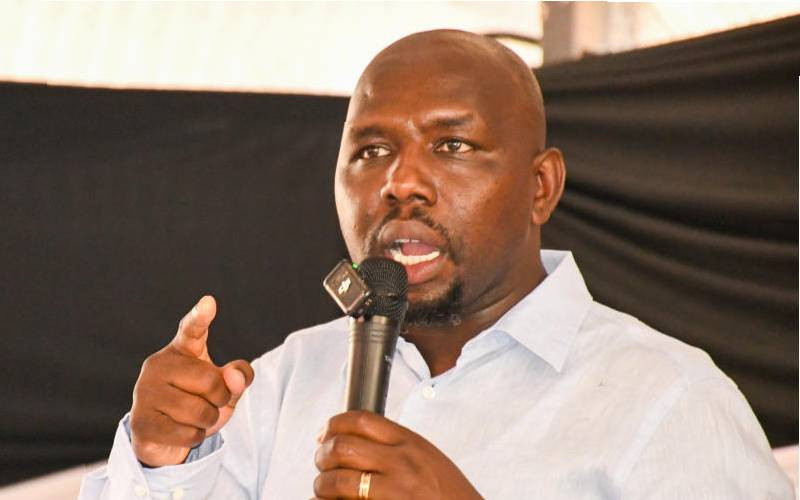
Among the Luhya community, a funeral is not complete without "Disco Matanga", which involves staging night vigils normally characterised by partying and frenzied dancing ostensibly to honour the deceased.
Viewed as a community ritual, disco matanga has increasingly been linked to decaying morals, especially among the youth who use such occasions to engage in drugs, excess alcohol consumption, crime and unprotected sex, leading to the spread of sexually transmitted infections and unwanted pregnancies among other social ills.
However, the vices associated with disco matanga have been a rising concern among religious and political leaders, the teaching fraternity and government officials who have been pushing for a ban on the nocturnal activity, which they maintain has long lost its meaning and purpose.
During his recent visit to the Western region, where he took his Jukwaa La Usalama campaign, Interior Cabinet Secretary Kipchumba Murkomen ordered the security agencies to stop disco matanga within their respective jurisdictions.
The CS was responding to complaints from locals who expressed their displeasure with disco matanga activity, which they maintained had taken on a life of its own.
"We have had over 100 cases of defilement for the last eight months, and it has been highly fueled by cultural activities such as disco matanga and illicit brew, and it is a behaviour that we have to deal with," said Murkomen.
He added: "In fact, disco matanga has led to an increase in crime rate since people leave their homes to attend a funeral the whole day and night, giving room for criminals to raid the deserted homes."
Murkomen told police and local administrators to ensure the activity is stopped once and for all since it had proven to be the breeding ground for insecurity in a region where mourning is an elaborate ceremony.
Murkomen urged the security team in the region to ensure there are no cases of disco matanga, whether it is a cultural activity where people give the bereaved family company in times of need.
"Whether it is a funeral or cultural belief that people should have disco matanga at night to give the bereaved families company, our security team should ensure no such activity takes place in the region. Drugs are being abused by young people, there is sexual exploitation and commission of crimes, and this must end," Murkomen stated.
But a section of residents has not taken kindly to Murkomen's directive. They argue that disco matanga is a practice that has been observed since time immemorial and that they found their ancestors religiously engaging in the ritual, which, apart from easing the emotional pain of those bereaved, it offers an opportunity to raise funds that are channelled towards offsetting some of the expenses incurred.
The residents believed that disco matanga, which normally happens on the eve of burial day, is a cultural event that offers room for people to emotionally, physically and financially stand with the bereaved family and give last respect to the deceased, as the deceased is part of the community.
"I am in my late 30s. I was born and found disco matanga in place. The CS has every right to ensure there are no cases of insecurity, but banning disco matanga is a tall order. Among the Bukusu, we normally have disco matanga, and this is to stand with the bereaved families to make sure that they don't feel lonely in hours of need and mourning," says Evans Wanyonyi, a resident of Sirisia, Bungoma County.
According to Moses Walaka from Nambale in Busia County, disco matanga helps in galvanising people to raise funds.
Stay informed. Subscribe to our newsletter
"It is not all about dancing and doing unthinkable things; disco matanga has been used to attract and keep people in a funeral where harambees have been done at night and money raised to help the bereaved family ensure their departed loved one gets a befitting send off," explained Walaka.
Although he admits that the practice has its negative side, disco matanga show a sense of brotherhood while ensuring a community in the village remains united.
Jane Khanaga from Lurambi, Kakamega County, thinks ending the practice will be a herculean task since even some of the local authorities are part of the community, and they are the ones who allow the "cultural" activity.
"Some of the village elders, chiefs and their bosses are part of the community, some get affected, and people come to stand with them. Some of them give a green light for disco matanga, yet they ones expected to stop the activity. I think it will be difficult; let's just have a way of regulating it and minimising the element of criminality, but not ban it totally," says Khanaga.
Daniel Manda, an elder from Busia town, opines that the concept of disco matanga is to promote brotherhood and sisterhood, love for one another and togetherness during and after a funeral.
"There is a sense of love and unity when people come together through disco matanga, and this offers maximum support to the bereaved family; it is a cultural thing. Getting rid of it or not should not be a subject of discussion, but the discussion should centre on how we can streamline it and restore its lost glory, its original meaning and purpose," states Manda.
Daniel Shikoto, a boda boda operator in Kakamega town, maintains that CS Murkomen will not succeed in his bid to dismantle a ritual that is held close to the hearts of many people from the region.
“Banning disco matanga is like cutting grass. It disappears for a few days but grows back because the roots, the culture, the social need, the identity, remain intact. Our CS has good intentions of ensuring are secure, but he should tell his officials to look for an alternative way of getting rid of criminals and not by banning disco matanga," observes Shikoto.
However, according to elders, the night vigil was not meant for everybody. Identified special people used to come to entertain mourners through music at night, and the entertainment exhibited high standards of discipline and moral values.
"During our days, disco matanga was a noble thing. We had orders and rules governing disco matanga. It was not an affair of just any person, but for one to entertain mourners at a night vigil, the person had to be a respectable person. The entertainment was done by the use of a guitar or a drum, and people would sit and listen to the music and dance to it without chaos or violence," said Joseph Akidiva, an elder from Vihiga County.
He added, "Disco matanga connected some to their future spouses. Ladies could come to the funeral, engage in activities like making firewood, fetching water, cooking, and they displayed life skills of a good wife, similar to men."
However, with modernity, some locals believe that disco matanga has been taken over by criminal gangs of young people who compete at night over which group is to take over the entertainment function.
Additionally, the business aspect of the night funeral vigil has brought competition and, therefore, jealousy among youth who end up fighting over the control of the event.
“The night funeral vigil has lost its meaning. It is not like it used to be in the old days. Young people come to attend with different ill motives, and we have seen a surge in cases of criminal activity being committed by youths. We have witnessed people being killed fighting over women, drugs and some engaging in crime,” says Moses Makokha.
According to the elder, young people have turned the practice into an avenue to indulge in unprotected sex, leading to teenage pregnancies and the promotion of other vices.
“We have seen drugs and illicit brew, bhang and other substances being sold at night, and nothing is being done. The habit has gone further to the point of young girls and boys engaging in sex, hence a rise in the number of teenage pregnancies and disease infections, and that is why it has become difficult to completely ban disco matanga because it is where youths get relief and solace,” said Makokha.
Recently in Shianda, the chairperson of the Council of Churches for Mumias East, Pastor Livingstone Washali, declared that clergy will boycott funerals that allow disco matanga. The threat, however, was met with resistance from a section of youth who vowed to continue with the activity.
“Disco matanga has destroyed our youth. It is time the church takes a stand to protect society,” Washali charged at a funeral service.
He accused the vigils, once communal and solemn occasions, of morphing into fertile grounds for alcohol abuse, immorality, and lawlessness.
Pastor Ruth Nabwire of Kingdom Restoration Church backed Washali, saying, “We understand mourning is part of our tradition, but it should be dignified. When a funeral turns into an open-air disco, we lose the meaning of paying our last respects.”
The clerics are urging the local administrators to decline issuing burial permits that extend beyond a single night.
Western Regional Commissioner Irungu Macharia told The Nairobian that security agencies will enforce the ban despite the resistance, threatening to arrest bereaved families and allowing such night vigils.
"As far as matters of security are concerned, what I know is that disco matanga stands banned, and we are going to swing into action. Those entertaining it, be it bereaved families or locals, we will arrest them and ensure the night vigil does not become or turn a breeding ground for criminality, sexual exploitation and drug abuse," said Macharia.
He warned that action will be taken against government officials who will be found to have been compromised.

